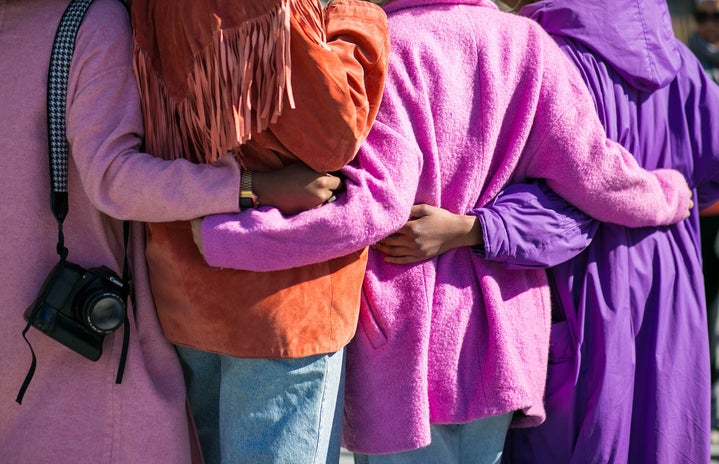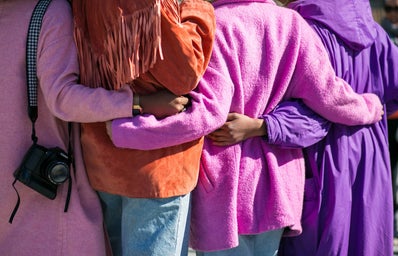Every September, thousands of first-year UK university students experience a ‘Freshers’ week’; this year it was my turn to take part in this seemingly age-old rite of passage. In fact, its legacy stretches far back, even chronicled by Edward Bradley, a 19th-century novelist, in his satirical comic, ‘Ye Freshmonne His Adventures at Univ. Coll. Durham’, about a ‘freshmone’ starting at the University of Durham, where the author himself graduated from in 1848. The comic follows a new student’s first few days of university, as he settles into his new home, meets new girls, and drinks so much that he passes out and has to be carried home. Along with the author’s well-known novel, ‘The Adventures of Mr Verdant Green‘ (an Oxford freshman), it seems as though the culture of drinking and partying associated with this week is an even older tradition than I had previously thought.
Undoubtedly, the term ‘Freshers’ week’ carries some less positive connotations in the UK. Speaking to family and friends in the lead-up to university shaped my expectations, and my apprehension began to build as my first week drew closer. Markedly, extensive alcohol and clubbing has become synonymous with the idolised ‘student experience’, and being Muslim, I wouldn’t be comfortable in this environment.
Reassuringly, after scrolling through the countless events on the King’s College London (KCL) student union’s website, I found many were catered to those who don’t drink, including a wholesome pizza and paint event, an alcohol-free games night, a bottomless brunch and even a meet and greet for students living at home and commuting to uni. This discovery certainly challenged those preconceived expectations of Freshers’ week that I had.
There has been a tangible shift in the culture surrounding university and drinking alcohol, especially since my parents were at uni in the 90s. While speaking to my dad about his experience, he said that “alcohol dominated the social scene at university” which meant that he and other non-drinkers didn’t feel included in the community. While other universities may differ, KCL’s student union has seen a notable uptake in events relating to sobriety, wellness, and mental health as stigmas relating to these topics are gradually decreasing. Numerous universities are officially rebranding ‘Freshers’ week’ as ‘Welcome week’ to be more inclusive and rid the experience of some of its age-old connotations.
These changes reflect the evolving nature of the student experience, with each generation making it their own. Perhaps for Gen Z, making it their own means devouring pizza while painting with watercolours, or making cute friendship bracelets while having brunch. As highlighted in the recent NY Times article by Sadiba Hassan, ‘When Did ‘Wholesome’ Become a Gen Z Compliment?’, ‘wholesomeness’ may be more than a fleeting TikTok trend; it has become, as she describes it, a “generational value”. Hassan’s article also explores the content that Gen Z’s generally prefer. She states that they favour “wholesome people, like Harry Styles; wholesome pastimes, like playing board games; and want a wholesome lifestyle consisting of ‘healing eras’ and ‘protecting your peace’”.
While these shifts make a positive change for a lot of people, as we as a generation are creating more inclusive environments, it’s safe to say we simultaneously bring a plethora of negative changes to the student experience too. One notable aspect is the impact that social media can have on our tendency to compare our lives to others, and consequently, on our mental health.
When I reflect with my friends on the beginning of my university experience, we can all agree that there is a palpable panic in the air. It feels as though everyone is participating in some unspoken competition – who can make the most ‘friends’? (where ‘friend’ seemingly signifies someone whose name and course you know). Who can post the most Instagram stories tagging as many people as possible? Who can make it look like they had more fun last night? While a similar competition may have existed when our parents went to uni, social media has undoubtedly amplified the pressure of the experience.
So, as I stand at the halfway mark of my first semester of uni, these are my thoughts: while Freshers’ week still undoubtedly consists of many of the same rites of passage that Edward Bradley wrote about over 150 years ago, certain aspects are irrefutably changing. I am constantly grateful for the increasing strides towards inclusivity and diversity that I am able to benefit from and I wonder how my parents’ experiences at uni may have differed had they been as fortunate. Simultaneously, I can also see how certain facets of student life are now more difficult than ever. In my opinion, social media plays a huge role in that. Ultimately, I now know that regardless of how old they may be, traditions can be changed, as the generations that take part in them change too.


